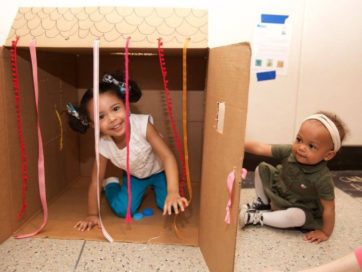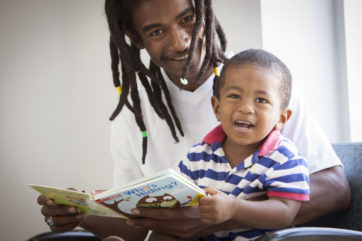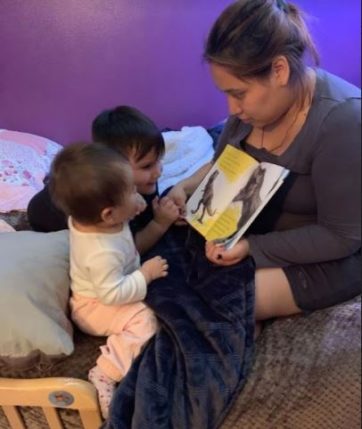Parenting Tips
How to Teach your Children to Play Alone
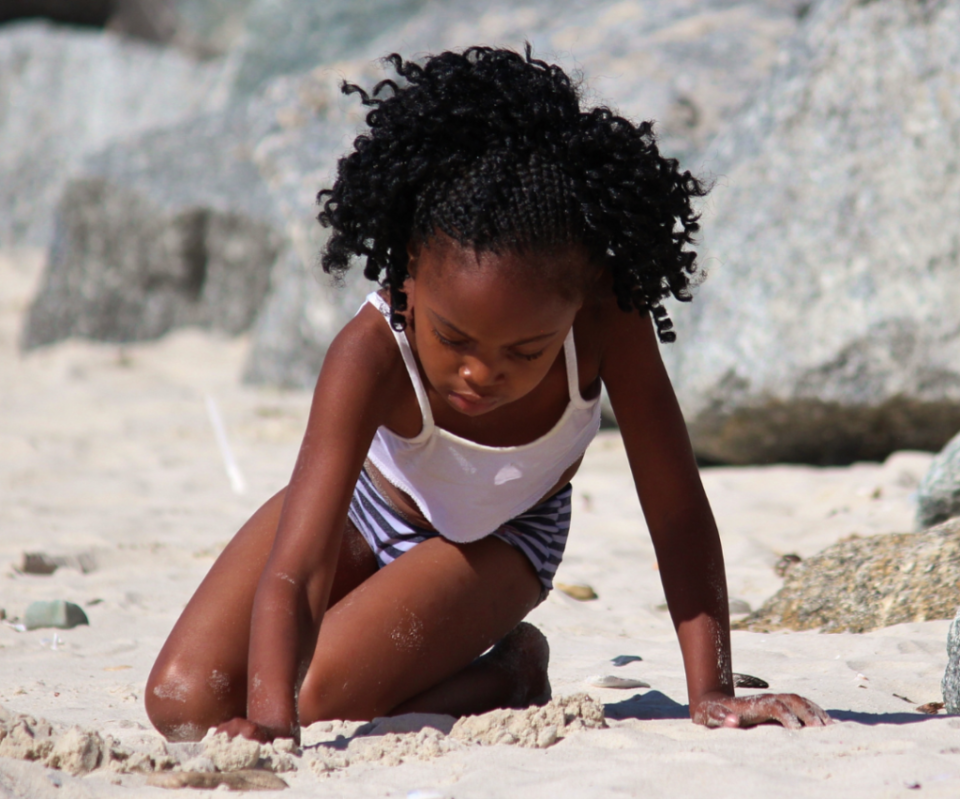
Children as young as newborns can play by themselves. So why do parents think we need to dedicate all our time to entertaining them? Here’s how to teach your kids to play independently (and why it’s good for the whole family).
When I was a new mom, after bringing my first baby home from the hospital I was struck by a few things. The way I pictured life with a baby was completely different from reality. And once the baby was nursed, bathed, snuggled and changed I was left wondering: What should we do now? I felt like it was my job to “entertain” him, and felt guilty when I wasn’t.
The reality: He was totally fine laying on his play mat, doing tummy time and exploring his new world. He didn’t need me constantly dangling toys, cooing at him, playing baby music, giving airplane rides and singing lullabies. All that stuff is lovely and has its place—but it doesn’t need to happen during ALL waking hours. He would often be just as happy to watch me do my physio exercises, go for walks in the stroller or carrier and hang out in the kitchen with me while I cooked and listened to Beyoncé.
The same goes for children as they age. My three kids (now seven, five and two) all know how to play independently. But it wasn’t always that way. Each day felt like one long marathon, morning blending into afternoon and evening, without a break in between, and I often heard the refrain: “Mommy, will you play with me?” Followed by complaints about the way I played. “NO. Not like that. You’re doing it wrong!”
Sound familiar? Here’s the truth: I am a grown up! I probably am “doing it wrong” because I don’t know how to play the same way a child does. As the famous Mr. Rogers once said, “Play is the work of childhood.” And that work is so beneficial and valuable.
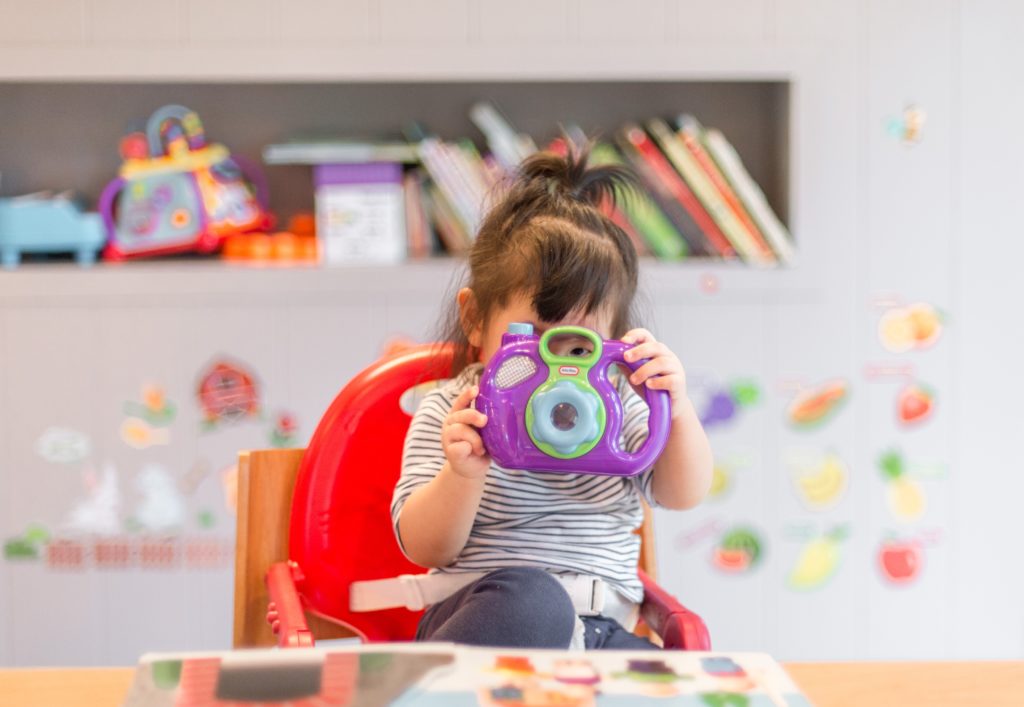
If your kids haven’t yet learned to play on their own, it’s never too late (or too early) to teach them. “Even young babies can start to learn independent play skills,” says Lizzie Assa, Play Expert, MsEd and the woman behind the popular Instagram account, The Workspace for Children.
“Independent play allows our children to pause, hear their own voice and follow their own inner narrative,” says Assa. “Play allows them to get grounded, slow down, pause and hear themselves think.”
The benefits when our kids learn independent play are essential not just for kids, but parents too.
Parents around the world (who, let’s be honest, are ALL a little burnt out right now) need more support. We shouldn’t have to turn on the TV or hand over an iPad in order to get a break and some peace. While those things have a place, experts recommend they not be used in excess, as they are detrimental to development and growth. Kids need to play. But sometimes, screens feel like the only option when we so desperately need alone time.
“Especially in 2021, parental burnout is real. Parents cannot get a break,” says Assa. “When parents are exhausted mentally and physically, caring for children can become impossible.”
Impossible—and also damaging to the parent-child relationship. According to a study in the Association for Psychological Sciences, in extreme cases, parental burnout can have serious consequences for both parent and child, increasing neglect, harm, and thoughts about escape.
But there is hope for burnt out parents. And it starts with self-care (which right now, is much harder to come by). That’s where independent play comes in.
“Developing an independent play routine for children allows parents the opportunity to win time back for themselves,” says Assa. “When children know how to play independently, parents have time to take care of themselves and their own needs.”
The real question? How do we make independent play actually happen? Though it won’t necessarily happen overnight, there are a few things that will help.
“First, learn your child’s interests and reflect those interests in their space and materials,” says Assa. “Do you have an animal lover? Put out animal toys and books.” Our children are much more likely to engage in play when it’s something they love.
“Second, think about what your child is naturally good at. Provide lots of opportunity to hone the skill,” says Assa. For example, “If your child is good at drawing, provide paper, markers, and stickers.”
We can also help our children process their experiences and learn to cope with big feelings through play. “Reflect your child’s life experience,” says Assa. “New baby in the house? Set out some dolls. School just started? Put out a school bus toy and people.”
Another surprising way kids play more productively? With less stuff. You might find when you declutter, that kids get more involved in their work. “Remove half the toys,” says Assa. “Children always play more productively when there are fewer toys to choose from.”
Speaking of toys, expensive does not equal better. Kids don’t need fancy. They just need their imaginations. “Anything can become a toy or a tool for independent play,” says Assa. “Remember that rocks, twigs and pinecones are equally as valuable as toys that are for sale. Children can learn just as much from jumping in puddles as they can when they play in a specially designed water table.”
The cliché about babies preferring cardboard boxes to the toys inside them is absolutely true. And that extends to toddlers and older kids too. “Use what you have on hand,” says Assa. “Slice open a large cardboard box and lay it flat on the ground to make a big surface for drawing, painting or playing on.”
And if that alone time you are desperately seeking seems impossible because your living space is small or your family is large then use props to create the illusion of space.
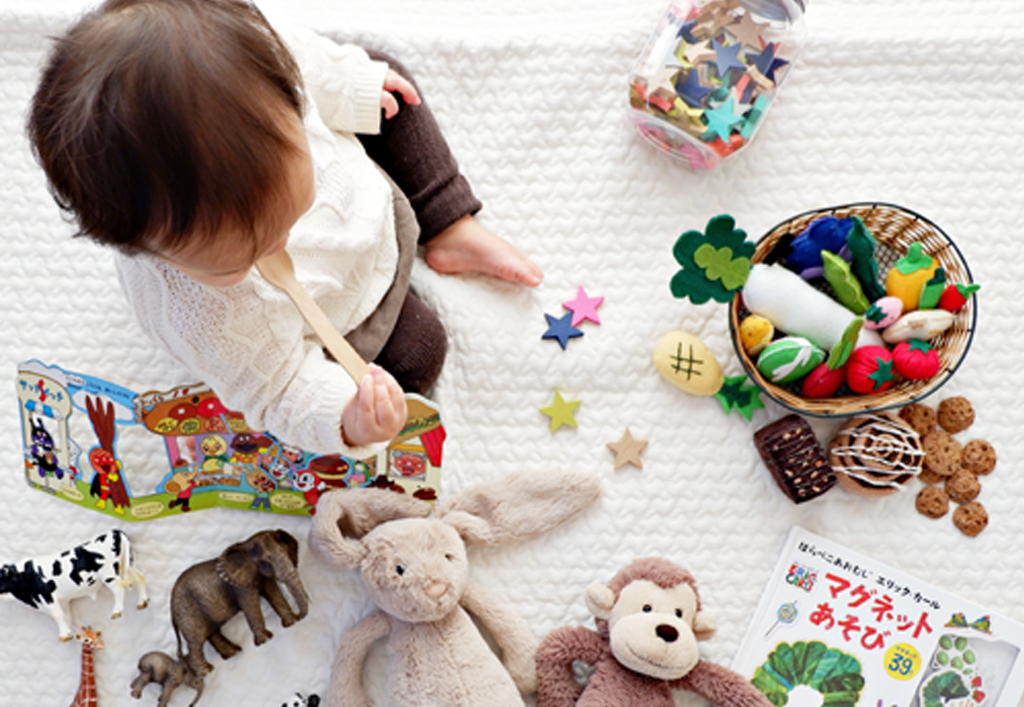
“Get creative and carve out nooks and crannies. Throw a sheet over the kitchen table and set up some toys and books under there, says Assa. “Use an under the bed bin to store favorite toys and books and pull it out when it is time to play. The world can be a workspace for our children if we just change our thinking a little bit. Play does not need to be complicated.”
When we not only encourage independent play, but set expectations to make it happen for an hour or two every day, the result is something we could all use in 2021: A more peaceful home. “When independent play happens on a regular basis, the family dynamic becomes calmer and more connected,” says Assa.
And that includes happy parents, who can cook dinner and listen to Beyoncé while the baby bangs spoons together, to the beat of their very own drum solo.
To find free literacy programs and activities that can inspire independent play at home, click here.

